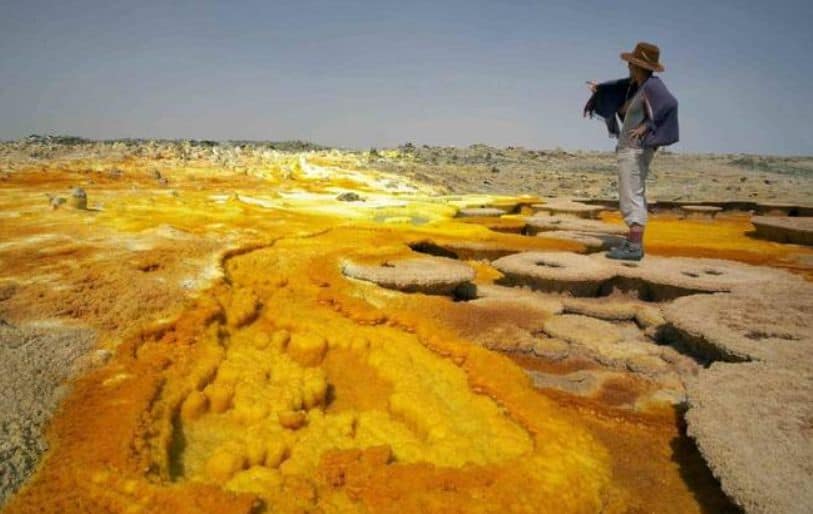A recent study denies the possibility that life can be generated in the Dallol geothermal area, with yellow and green pools that look like something out of an impressionist painting
The Dallol geothermal area, located in northern Ethiopia, has been described by scientists as the most dangerous and inhospitable place on Earth. According to the researchers, this is an area where clouds of toxic gas create an environment incompatible with life.
The area surrounding the Dallol volcano (Ethiopia) has a more than striking landscape: pools in yellow and green tones that seem drawn from an impressionist painting. However, don’t be fooled, you’re facing one of the most extreme environments on the planet.
The waters in this area are super hot, super acid, super salty, have high concentrations of iron and lack oxygen due to the influence of the Dallol volcano, which has flooded the area with a toxic brine, saturated with gas.
Before it was said yes
A few months ago, a Spanish investigation by the Center for Astrobiology assured that, for the first time, the presence of living beings in this environment had been discovered. Evidence of nanobacteria, about microbes 1,000 times smaller than conventional bacteria, was said to have been found that often live in hydrothermal vents in the oceans.
However, a recent study published in the scientific journal ‘Nature Ecology & Evolution‘ denies the existence of any type of life in the area, claiming that what the Spanish scientists found were not microorganisms, but “many pollutants associated with humans and with the air”.
According to the researchers, the results of their study suggest that it is not possible to find an active and natural microbial life in the Dallol pond and lake system for two main reasons.
However, Felipe Gomez, from the INTA-CSIC Astrobiology Center and author of the previous work, clarifies to Revyuh that “in the work that we publish in Scientific Report we do not publish biodiversity, therefore it cannot be said that we saw human ‘contamination'” as the French claim. “We published a first result where we reported the presence of a species of halophilic nanobacteria, and I insist: halophilic, that is, not human.”
“We identified two main physicochemical barriers that prevent life from thriving in the presence of liquid water on Earth and potentially elsewhere, despite the fact that the presence of liquid water on a planet’s surface is a widely accepted criterion for habitability,” the scientists told Science Alert. These two barriers would be the brine pools and the hypersaline and hyperacid environment which eliminates any possibility of organisms living there.
